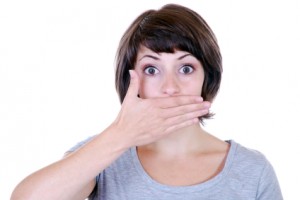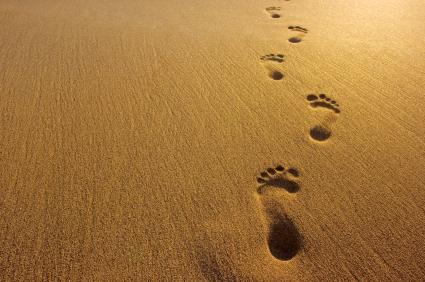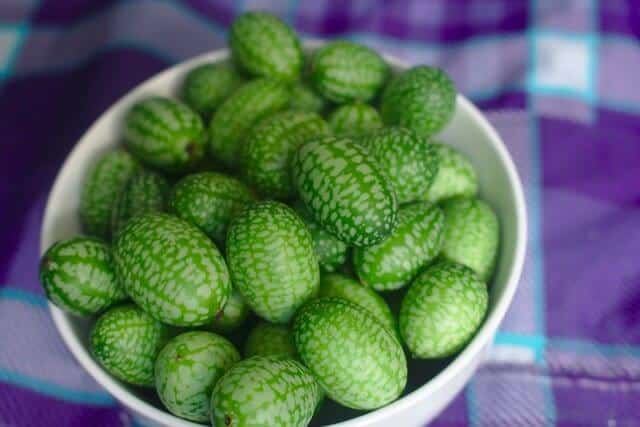 If you are one who is prone to cold sores, you know how having one can make you want to become a hermit and avoid seeing anyone until it heals completely. Feeling that telltale tingle can be enough to stress you out, and often that stress only makes the impending eyesore all the more likely to appear.
If you are one who is prone to cold sores, you know how having one can make you want to become a hermit and avoid seeing anyone until it heals completely. Feeling that telltale tingle can be enough to stress you out, and often that stress only makes the impending eyesore all the more likely to appear.
What Is A Cold Sore?
Cold sores are the result of the virus, herpes simplex type 1 (HSV-1). They generally start with a tingle in the lip area, followed by a swelling, then a blister or cluster of blisters filled with virus-laden pus. Then the sore will erupt, begin to dry, scab over, and heal up. The process generally lasts about a week, and the sores are contagious from the feel of the tingle up to the point of complete healing. Cleanliness and hands-off are important things to remember, since you do not want to pass this virus on to other people.
Cold sores should not be confused with herpes simplex type 2 (HSV-2), a sexually transmitted disease, though both viruses can be transferred to someone in that manner if the virus cells are transferred to the sexual organs.
Cold sores are often confused with canker sores, but they are not the same thing. Cold sores, also known as fever blisters, are located on the visible part of the lips and the surrounding area, while canker sores are located inside the mouth. Cold sores are viral and contagious, while canker sores are not.
The tendency towards getting cold sores is inherited; when first exposed to the virus, those who are vulnerable will likely get the worst bout of cold sores in their life, while those who are not prone to it will carry the virus but not get the unsightly sores. Once the herpes virus enters the body, it hides in nerve cells where the immune system cannot find it, and it waits for the opportune moment to show its ugly face (no pun intended). One good thing to know is that after the first battle with cold sores, the following cold sores are usually not nearly as bad.
How Can I Prevent Cold Sores?
The main way to prevent cold sores is to know what triggers them and avoid or at least balance those things in your life. The triggers vary from person to person; what triggers one person’s cold sores may have little effect on another person. Generally, though, the healthier a person is and the stronger their immune system, the less likely they are to have frequent bouts of cold sores.
Analyze your own life and your body’s response, and determine what your triggers are. Examples of cold sore triggers include:
Exposure to the virus from someone else – When you or a family member have a cold sore, it is wise not to share towels, utensils, cups, etc. and to move toothbrushes away from each other to discourage the likelihood of sharing the virus. Also, refrain from kissing your loved ones if you have a cold sore!
Illness/Impending illness – Often, if the body is fighting an oncoming illness, the HSV-1 will find this to be the perfect time to attack. Do what you can to fight off your illness and strengthen your immune system during this time. Rest when you feel the need, rather than “pushing through”, stay away from junk food, and take your supplements. Probiotics go a long way in helping the immune system to function normally. Find one that works for you, or make your own yogurt, kefir, or fermented vegetables and make them part of your daily or semi-daily meal plan.
Stress – We cannot avoid all stressors in our lives, but we can find ways to avoid some stress and to alleviate the stress we cannot avoid. Try not to take on more than you must, and take care of yourself, both physically and mentally. Look into a good calcium and magnesium supplement, as these have been shown to help the body to better deal with stress. Your lips will thank you.
Too much sun – In addition to helping to prevent skin cancer, sunscreen can also help you to avoid getting cold sores. In addition to putting sunscreen on your body and face, be sure to use a lip balm with SPF frequently when outdoors. An added help would be to wear a hat with a brim that will shadow your face.
Fatigue – Let’s face it: we all get run-down at one time or another, and being run-down is bad for your immune system and your mental health. Look for ways to be rejuvenated and give your body what it needs to recharge and be able to face your day-to-day duties.
Hormonal shifts – Women especially suffer with hormonal shifts during their lifetimes as their hormonal levels change from puberty, to their monthly cycles, to pregnancy and breastfeeding, and finally to menopause. Often during these hormonal shifts, a cold sore will rear its ugly head. There is not a lot that can be done to change your hormonal shifts that would not otherwise affect your overall health. However, it is wise to be aware of the changes and do what you can to lessen the likelihood of getting a cold sore by taking action on the other triggers on this list.
Trauma to the lip area – Often, taking a hit in the mouth will trigger a cold sore. Immediately adding ice should help to both alleviate pain and prevent a cold sore.
Too much arginine in the diet – Arginine is an amino acid that happens to stimulate the herpes virus, causing it to multiply. Generally, this amino acid is balanced by the other foods you eat, but occasionally the amount of arginine you eat may be more than the rest of the body can balance out. Some foods high in arginine that you might want to cut back on or avoid if you feel an impending cold sore are: nuts, seeds, grains, raisins, chocolate, cocoa, carob, and gelatin.
How Can I Treat Cold Sores?
Once you feel the tingle, here are some natural remedies to try to avoid getting a cold sore or to help it heal more quickly.
Ice – When you first feel the tingle, one of the simplest ways to possibly circumvent getting an all-out cold sore is to apply ice to the area. Be careful not to cause frostbite to the area—fifteen minutes at a time should be sufficient. Repeat this throughout the day.
Tea tree oil – Tea tree oil is an all-natural antiseptic that is quite effective for cold sores. Use a cotton swab to dip into the bottle and apply to the affected area, then toss the cotton swab in the garbage. Do this several times a day, and the cold sore will dry up and heal faster than it would if left alone. If straight tea tree oil is too strong for you, it may be diluted with distilled water or vegetable oil.
Lysine – Lysine has long been an old stand-by for those prone to cold sores. Though it is not recommended for long-term use, it is just the ticket when you feel the tingle. Lysine is the amino acid that balances out arginine; while arginine stimulates the herpes virus, lysine inhibits it.
Take 500 mg when you first feel the tingle, then 500 mg twice a day until the tingle or the cold sore is gone. Certain doses of lysine may raise your cholesterol levels; talk with your doctor if you have issues with high cholesterol.
Lysine also comes in some lip balms and creams for cold sores. Check your local pharmacy or health food store.
Lemon balm – Lemon balm, a plant in the mint family, has been shown to have antiviral properties. To get the benefits, you can make lemon balm tea and dab it on the affected area with a cotton ball a couple times a day until the sore is healed. Drinking lemon balm tea will help your general system. There are also creams on the market that contain lemon balm.
Can’t find lemon balm? Other plants in mint family have been shown to have similar benefits. Try peppermint, oregano, rosemary, thyme, sage, or hyssop.
Garlic – Garlic has strong antiviral properties. Take three tablets when you first feel the tingle, then take three tablets up to three times daily with your meals until the sore is gone. There are tablets that are deodorized and not make you smell like you are trying to ward off vampires. Alternatively, you may choose to use a lot of garlic in your cooking.
Echinacea – Echinacea has been known to boost the immune system when taken at the beginning of an illness. It has also been found to have antiviral properties. Do not take it every day for an extended period of time, for it loses its effectiveness. A tincture is the best mode of delivery. You may pick up at your local health food store and follow the directions on the bottle, or you can make your own. Alternatively, pick up the dry herb in capsules and follow the dosage instructions on the bottle.
Licorice root – Licorice root inhibits the growth of the herpes virus. It is best avoided by those with high blood pressure, unless it can be found in deglycyrrhizinated (dgl). Even in that case, it should not be used for longer than one week. Use as directed.
A more palatable (for some) and safer option may be to have a piece of genuine black licorice at the onset of the cold sore and during the time of healing.
Zinc – Zinc gluconate lozenges can help to boost your immune system function and fend off the cold sore. They’re not just for cold and flu viruses! Use as recommended on the package.
Homeopathic remedies – Homeopathic remedies are best when personally prescribed by a naturopath or other physician, but one over-the-counter homeopathic remedy that I have found to be helpful is a product called Novitra. This product contains zinc in a homeopathic form, and when used at the first tingle, has often prevented the full onset of the sores. This product can be used every day as a preventative (helpful for monthly hormonally triggered outbreaks) or on an as-needed basis.
Living with the dread of getting a cold sore is not enjoyable, and facing the world for a week at a time with a cold sore can be embarrassing. Use the information above to make your body strong and proactive, so that it can keep the virus dormant. Failing that, stock your health arsenal with your choice of cold sore ammunition so you will be prepared to fight that unsightly sore when it appears!










